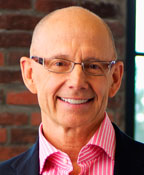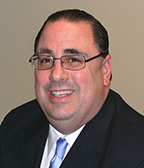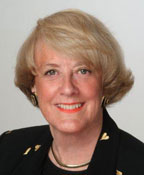 |
|
Bill Blatchford, DDS |
Can you feel the “new economy?” We all want prosperity to return. However, the real “after” is the new economy. Americans are holding back on purchases and have learned to save more than ever. In addition, lay press is purporting ways to save money by encouraging gardening, vacationing close to home, and making your own fancy coffees. All this can hurt small businesses, and the dental office is no exception. What are we to do?
Recognizing what defines the new economy, and how Americans are currently thinking, is the first step. The second step is for you to do something about it. We have to be even better in what we do, how we do it, and how we are perceived in the community. We must differentiate ourselves from others. One way to make yourself stand out from other dentists is to broaden your offerings.
Our purpose in gaining new skills is two-fold. One is to attract a broader base of patients. It does take a larger numbers of patients who see your passion and meet your skill to have a great end result. Also, without adding new skills, dentistry can become routine and we can find ourselves in a rut. Adding new skills is a way for you to re-energize yourself emotionally and financially. Overall practice success and case acceptance increases when there is a transfer of enthusiasm. What is needed is a little more enthusiasm from the dentist, which trickles down to the team. Energy in creates energy out.
TAKE AN INNOVATIVE AND NEW APPROACH
Let’s think about some ideas for you to consider. Consider choosing a couple of these new possibilities to enhance both your practice and your life:
Become skilled by seeking the best for training.
Many dentists are seminar junkies and could be labeled “over-educated.” Some fail to apply these skills in their practice. What is the fear of adding or trying something new? Get over it and dive in!
Rethink your Web site as you access yourself.
What skills do you presently do that are not featured on your Web site or have testimonials of your results? Google ad words are extremely important, and this is a good way to increase your visibility and attract patients within your community.
Learn new skills to broaden the services that you can offer.
Currently, many dentists are listed as reconstructive and cosmetic dentists. These are great skills to possess. Since most of this kind of work is optional, dentists who have centered their practices on being “exclusively cosmetic” are now really scrambling for those few patients who are able to afford spending dollars on looks alone. Even the best of the cosmetic dentists are finding they need to broaden their skills to attract more patients. Some patients may come in for other services before they become focused on aesthetic problems.
Know your numbers!
From a business standpoint, numbers are important. You need a healthy new patient flow to stay in business. We are a transitory nation and about 20% of our population moves every year. If you are losing 20% of your patients, are you gaining in numbers or are you slowing going in the red? You need to do something different to make the numbers grow.
What can you do to broaden your base and scope of patients seeking your services?
What clinical skills/procedures do you offer currently? Are there skills/services that you once had/offered but, when the whole American economy became fat and happy, you dropped those skills? What would it take to add those rusty or forgotten skills back into your routine?
Do you deliver the classic denture services? In many areas, dentists have relegated this treatment to denturists. Many dentists see providing dentures as a service that is not as attractive as others they would rather focus on, and a real time consumer. The aging boomer population has many edentulous and yet successful people. How about taking a solid course on implementing the latest techniques in dentures? (To name a few examples, Drs. Joe Massad, Jack Turbyville, and Charles Barotz all teach terrific continuing education courses in this arena.) You could fill the niche of a competent general dentist who offers oral cancer checks along with aesthetic dentures with excellent fit and function, especially with the ability to offer implants when indicated. Many other general dentists would be more than willing to send you their denture patients.
Are there some clinical treatments in which you are dabbling? You may have taken the courses, did one or two but have not really committed to fully engage yourself and take advantage of your educational expenditures. Could one of those be Invisalign? The same might be true of no-prep veneers, which definitely can attract new patients. It does require your skill and judgment to determine if a patient qualifies for an outstanding result using these techniques, or a traditional approach might be required.
What are some larger items in which you might have some interest?
Perhaps you have thought of implants and may have even taken some courses. You may already restore implants, so how about learning to place implants? If you see yourself as a reconstructive dentist, how could you not have implant skills? Patients do like it when they can have their work completed in your office. Obviously, this takes skill, care and judgment as to when you do have the skill to handle this case or when you should you be referring part or all of it to specialists.
Perhaps oral surgery was not your favorite subject in dental school yet, we find many times people reject a certain subject because of department philosophies or certain professors with whom you did not bond. Look again at those subjects, now that you have gained clinical experience outside of dental school and possess an increased level of professional maturity and wisdom.
Consider becoming certified in intravenous (IV) sedation.
This attracts the “dental phobics” who can have everything completed more comfortably while sedated. The combination of implant skills and IV sedation certification is very appealing to those who may be dental phobics. Check the certification requirements in your state.
What about people who want their amalgam fillings replaced?
There is a whole segment of the population who believe the old dental fillings of amalgam are toxic and causing them a wide assortment of problems. Regardless of your personal feelings and the science behind this topic, there are people who want perfectly good fillings to be replaced. Can you do that? How would you ethically position yourself as the “go-to” dentist to serve this segment of the population? Networking with chiropractors, naturopathic physicians, health food stores, health journals, and blog sites might be a consideration. Some dentists avoid this without even trying by saying “these people have crazy ideas and the scientific literature does not support their beliefs!” The question I ask, “are all your present patients perfectly sane now?” You decide whether or not you can (or should) help these patients.
Another area you can become skilled is the very broad subject of pain.
You are in a position to learn much about occlusion and temporomandibular joint disorder with the associated headaches and spasms. This is an area where you can become an expert. There is much literature to review and many classes available to take. There is no pat answer for every patient and that can create the challenge and ignite your passion to learn more. Learning to work with the medical community is a must. The majority of pain patients begin with their internist and work their way up to the neurologist, with each level trying different medicines and methods. Take the courses and find the right neurologist who understands how you can help their patients still in pain and how you can help them. It is all about networking and referral sources.
Emerging evidence indicates new treatments for periodontal disease that are amazing.
The baby boomer population is very concerned about keeping their teeth. Wouldn’t it be an attraction to your practice if you had the skills, equipment and desire to help them keep their teeth? With the use of lasers, periodontal pockets are being treated with positive results. There is even evidence of bone stimulation and growth. Your hygienist can help you diagnose the levels of periodontal disease and even do preparatory work. In some states, hygienists can actually treat patients with a laser.
CLOSING COMMENTS
Some of the treatments that we have discussed could invite a cautious reaction from some dentists. You need to do your due diligence in discovering what works for you. We do know that many doctors who have focused their practices on too few services are struggling in this recession. We recommend that you consider expanding your thinking. Are you willing to try something new and different that will attract different kinds of patients? Or will you continue to do the same, work more days and longer hours, complaining all the while about the recession and the apparent lack of patients?
There is a whole new world of opportunities available for you. Which direction will you go? Where can you find some new passion in dentistry? Differentiate yourself and your practice by learning new skills. Be adventurous and make it happen!
Dr. Blatchford has created success with fellow dentists on increasing net, increasing time off and increasing joy in continuing to practice. He’s the author of 2 best sellers, Playing Your ‘A’ Game and Blatchford BLUEPRINTS as well as his new product, The Business of Hygiene—How to Make Yourself Indispensible. The Blatchford Custom Coaching Program is the pinnacle of offerings. He can be reached via e-mail at info@blatchford.com, or visit his Web sites at blatchford.com and blatchfordlive.com.











